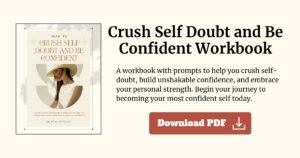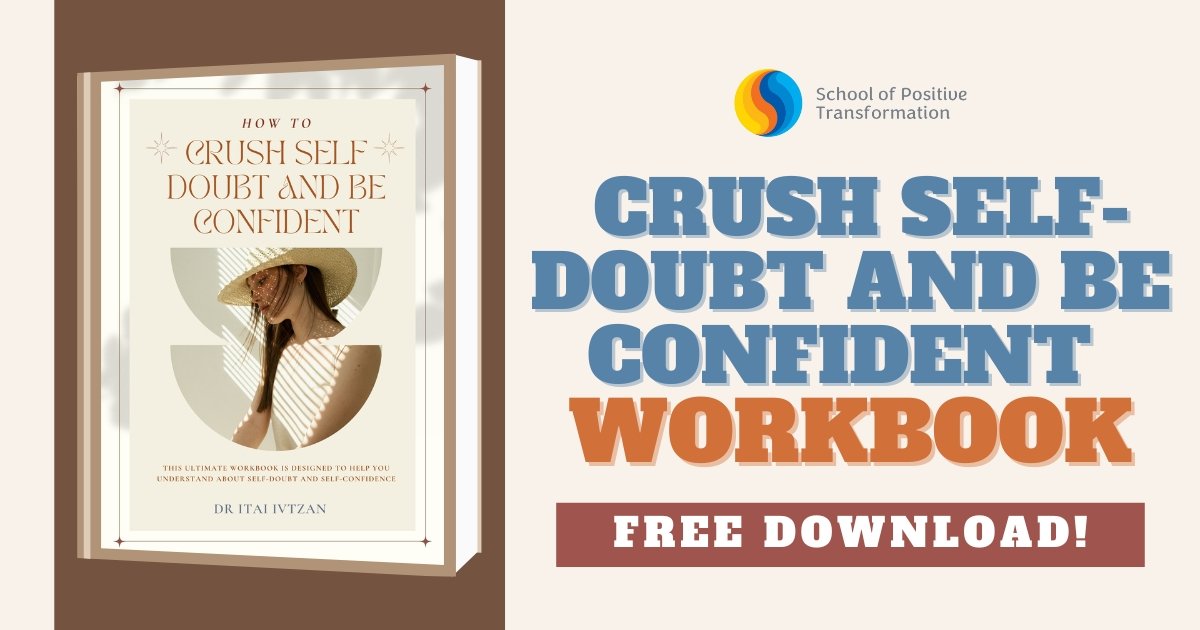Mindfulness Training Online— This 10 Minute Habit Can Help Save You From Experiencing ‘Burnout
 Mindfulness Training Online is a practice designed to bring the mind’s through under control in the present moment.
Mindfulness Training Online is a practice designed to bring the mind’s through under control in the present moment.
Will robots take over our jobs in the future?
Well, truth is, I think WE ARE BECOMING THE ROBOTS that we are fearing of.
In this article, I will share with you this simple habit that I learned from meditation training that helped me feel like a human again.
Before you continue, you might like to consider our free worksheet on exploring “Crush Your Self-Doubt and Be Confident”. Please download this worksheet here.
According to Injio:
“The reason we will be replaced by robots is because we act like robots, doing the same thing every day, happy to just get paid. We need more from life. Humans must be more creative, and long to be challenged. We are more than 1s and 0s.”
I do agree that we need to get more from life, but how do we do that?
Accomplish More By Doing Less
You Only Need 10 Minutes A Day of Meditation Training To Prevent Burnout
We love the hustle, the busyness, but what we don’t realize is that being busy is NOT exactly the badge you’d want to wear— because busyness is a form of cognitive overload. Cognitive overload happens when you’re a part of your brain that handles information receives more than it can handle comfortably and thus leads to feelings of frustration, and difficulty in decision-making. You might be more familiar with the term burnout, right?
An overloaded brain will do less of the following:
- plan,
- be creative,
- organize,
- innovate,
- solve problems,
- make decisions,
- resist temptations,
- learn new things easily,
- speak fluently,
- remember important social information,
- and control our emotions
Our performance is greatly affected when we do less of the above, we become almost like robots. I can relate when Ryan Fan, a special education teacher said,
“ I feel sometimes that we’re trying to be robots in other parts of our lives too. We try to be productivity machines all the time and not give ourselves time to rest or feel. In a capitalist society where our value is determined by how much we can produce and our outputs, it’s difficult to not want to be a robot. It’s difficult to not want to be someone who can study or work all day and still have energy later to keep that production going.
Accomplish More By Doing Less
A stark difference that we have from robots is that our brains are not computers. We may believe that we can multitask, but we are not made to deal with a load of different ideas simultaneously. Although we can do that in perspective, we become tired and more prone to error, unlike machines who are always as efficient as they started.
So does it mean that we should do less?
My answer is yes!
We have been living in a mindset that having more, doing more is better! But that is not always the case. The following are just some of the ways that can help you ease into the “doing less is more” concept.
-
- Do single tasks. Put the distracting devices away for a while. Yes, put that Netflix away and focus on your task. Whenever we chase time, we find ourselves labeling the moment as being busy. We try to do a lot of things simultaneously because we think that our working hours isn’t really enough to do everything. But have you evaluated the unnecessary things that you were doing during that shift? To quote, Christine Carter, a sociologist, “When we settle in, put distracting devices aside, and do one thing at a time, we worry less about keeping up with time—and that’s the exact opposite of busy.”
- Often, less is more. Appreciate. The reason why we don’t seem to get satisfied is that we keep wanting more because forget to look at the things we have. We seem to forget to appreciate when we already have enough of what we need.
- Sometimes the bare minimum is enough. The “minimum effective dose” (MED) is the lowest dose of a pharmaceutical that spurs a clinically significant change in health or well-being. Look for the MED in everything: work, sleep, meditation, blogging frequency, checking email, school volunteering, homework help, date nights.
- This one is my favorite (do nothing)Slow down! Our brains benefit when we waste time because we daydream and most of the time this act of wasting time can give turn into unexpected creative insights! Now my favorite creative insight is when Archimedes formed his buoyancy principle in the middle of his bath.
 And when I say do nothing, you do nothing. No spending and adding things to cart my dear! I’d rather waste my time doing nothing than waste it by wasting money
And when I say do nothing, you do nothing. No spending and adding things to cart my dear! I’d rather waste my time doing nothing than waste it by wasting money
Breathe in and try to feel comfortable with the stillness. I know that most of us aren’t too comfortable with stillness so we try to fill up that gap with no other than going back to busyness. Observe how you agitate you are with doing nothing in silence because instead of doing some recreational activity you keep yourself browsing and swiping up your Facebook feed. When was the last time that you gave yourself the joy of just staring into space?
Now this one I get to practice every meditation training session!
The above are just some of the things that can keep you away from feeling like a heartless, automated robot. You might want to check out the next part if you want to form a habit to keep you getting so burnt out!
You Only Need 10 Minutes A Day of Meditation Training To Prevent Burnout
Now we go back to the concept of cognitive overload. Cognitive load refers to “the total amount of information your working memory can handle.” Cognitive overload is considered as the explanation for the phenomenon we know as burnout.
 I learned from my mindfulness training online that practicing mindfulness meditation for 10 minutes a day improves concentration and the ability to keep information active in one’s mind, particularly in that part known as “working memory”.
I learned from my mindfulness training online that practicing mindfulness meditation for 10 minutes a day improves concentration and the ability to keep information active in one’s mind, particularly in that part known as “working memory”.
The brain achieves this by becoming more efficient, literally requiring fewer brain resources to do these tasks. Research by Shone and colleagues (2018) found that by doing one simple exercise for 10 minutes a day there was an observable improvement in concentration and working memory. Malinowski mentioned,
“It is easy to see how this is relevant for daily life. Staying concentrated, singling out important from distracting information, and keeping it in mind, are useful skills in situations of information overload. For instance, radar operators perform better on this task and, on a more mundane level, so do people playing fast-paced video games”
This simple meditation exercise that they used in the study is known as the “mindful breath awareness meditation.” It involves focusing on the sensation of your breath – for example, the air flowing in and out of your nostrils. If any thoughts, feelings, or other sense impressions arise, you should just recognize them and return to the breath, without judging the distraction or further thinking about it.
According to my mindfulness training online instructor, this is truly one of the simplest and easiest meditation exercise that beginners may want to try first. And yes, I do this breath awareness meditation too! Do you?
Ready to experience the power of mindfulness for stress relief and mental clarity? Start with just 10 minutes a day and see how simple meditation can transform your well-being. Download our “Find Your Passion Workbook” now and begin your mindfulness journey today!






